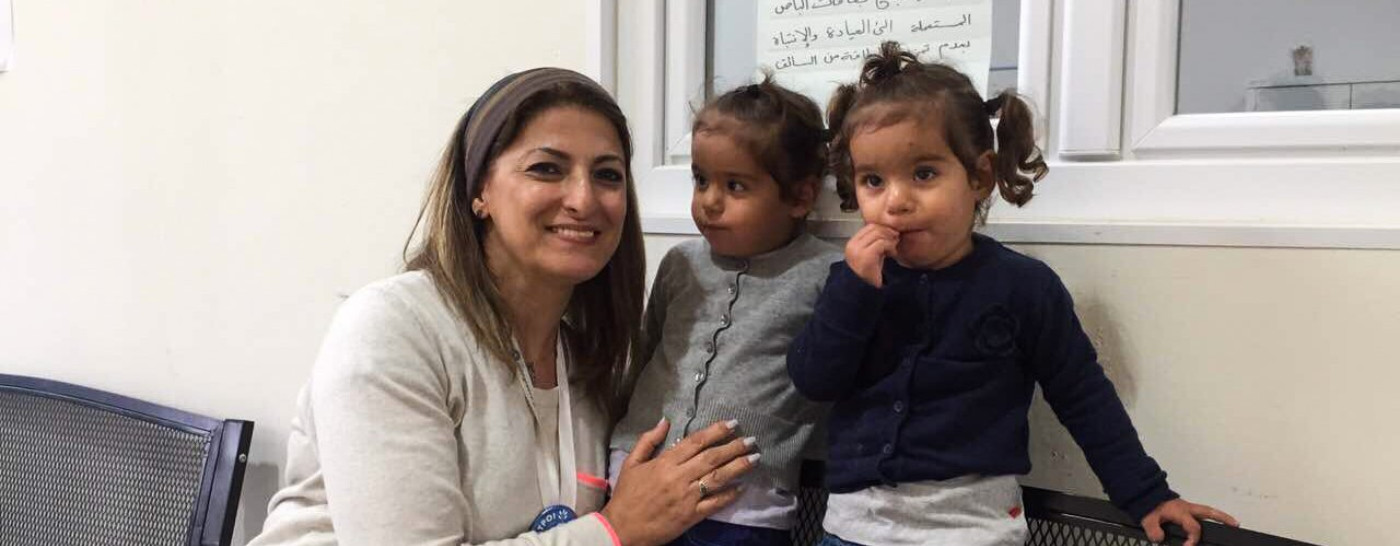Refugee Week: Our team share stories of working in Greece’s camps
Published 21st June 2017
Kharman Adhim, a 55-year-old Londoner, spends her days in northern Greece’s refugee camps. As one of our interpreters, she helps the camps’ pregnant women and new mothers explain their health problems to our medics. When our team has to refer a woman to hospital, she heads there with them.
“We see a lot of Yazidi women who are fleeing ISIS. These are people who have lost everything,” says Kharman, a fluent Kurdish and Arabic speaker who moved to the UK from Iraq almost 30 years ago. “We see people who owned land and had jobs – and now they have nothing. There are women who are going to give birth soon and they don’t even have clothes for their baby.”
The UK’s annual Refugee Week takes place this week, throwing a spotlight on people around the world who have been forced to flee their homes. Over 65 million people, slightly more than the entire population of the UK, were displaced in 2016. Around half of the world’s refugees are children.
In Greece’s Kavala and Drama camps, Kharman translates during our nutrition workshops for pregnant women and one-to-one consultations with our midwife. Doctors of the World works in refugee camps across Europe and the Middle East to give medical care to people in need.
“We see a lot of people with mental health problems like depression – and it gets worse the longer they are in the camps. People get frustrated because they don’t know what’s happening to their lives,” says Kharman, who also translates for refugee women during their consultations with our psychologist.
“I recently translated for a Syrian woman in her 50s who would suddenly bring up memories of happy times and cry – she would say things like ‘My children and I always used to celebrate my birthday together’, or ‘I miss my neighbour’. The life that she knew is just memories now. She has no normality.”
Greece is home to 62,000 refugees and continues to disproportionately bear the burden of people arriving in Europe. Many other European countries have closed borders or stalled on commitments to support those in need – the UK abruptly ended a scheme to take in child refugees in February and some EU assistance in Greece’s camps is due to be reduced.
Many camps in Greece are highly unsafe for women and girls, who are even afraid to go to the toilet alone at night.
“It’s so hard for pregnant women and newborn babies to live like this – socially, financially, psychologically, on all levels. Some of the women I see are just exhausted,” says Hanna Yacoub, who also works as one of our interpreters. Everyday, along with a midwife, she visits camps near the northern Greek town of Larissa in our mobile clinic van.
Kharman, a qualified solicitor who herself first settled in the UK as a refugee, says she knows all too well how these women are feeling.
“I left everything behind – my career, my house, everything. It’s a long process to start building your life again and you keep asking yourself: ‘What is my future?’ ” she says.
“It’s been a struggle but I’m settled in the UK now. I have friends there. It’s my home.”
Doctors of the World works around the clock to treat refugees in camps, shelters, and unfamiliar new homes. Please donate NOW to make a difference and help save lives.
